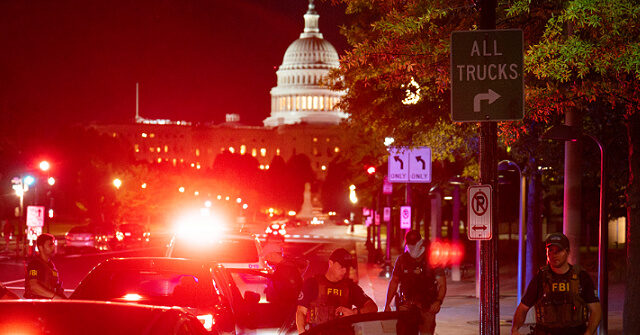Is Terry Cole the Right Choice to Lead DC's Police After 22 Years at the DEA?

Understanding the Role of Terry Cole as Emergency Police Commissioner in Washington
The recent appointment of Terry Cole as Washington's "emergency police commissioner" has stirred significant attention, particularly in the context of law enforcement and public safety. This unprecedented move by Attorney General Pam Bondi, in alignment with President Donald Trump’s directive, marks a pivotal moment in the governance of the Metropolitan Police Department (MPD). Cole's extensive background in law enforcement positions him uniquely for this role, as he brings over three decades of experience, including a notable tenure at the Drug Enforcement Administration (DEA). In this article, we will delve into Cole's background, his responsibilities, and the implications of this new role on law enforcement in Washington.
A Brief Overview of Terry Cole's Law Enforcement Career
Terry Cole’s career in law enforcement spans more than 31 years, showcasing a commitment to public safety and community service. His most recent position as Virginia's secretary of public safety and homeland security under Governor Glenn Youngkin has equipped him with crucial insights into state-level law enforcement operations. During his tenure at the DEA, Cole held various roles that placed him at the forefront of combating drug trafficking and organized crime.
His experience includes significant work in various high-stakes environments, including overseas assignments in Colombia, Afghanistan, and the Middle East. As the DEA's acting regional director for Mexico, Canada, and Central America, he played a vital role in international drug enforcement efforts before retiring from the federal government in 2020. This depth of experience makes Cole a formidable figure in the fight against crime and drug-related issues.
Educational Background and Leadership Training
Cole's educational credentials further bolster his qualifications for the role of emergency police commissioner. He holds a bachelor's degree in criminal justice from the Rochester Institute of Technology, which provides him with a solid foundation in the principles of law enforcement and criminal justice. Additionally, he has pursued further leadership development, earning certificates from prestigious institutions such as the University of Virginia and the University of Notre Dame Mendoza School of Business. These educational achievements reflect his commitment to continuous improvement and effective leadership in law enforcement.
The Emergency Police Commissioner's Responsibilities
In his newly appointed role, Terry Cole will assume powers traditionally vested in the Chief of Police for Washington, D.C. This includes significant oversight and authority over the Metropolitan Police Department. Notably, all directives issued by the MPD will now require Cole's approval, effectively centralizing command and control of law enforcement operations within the city.
The implications of this shift are profound. Cole's appointment signals a potential restructuring of law enforcement priorities and practices in Washington. His background in drug enforcement may lead to a renewed focus on drug-related crimes and the strategies employed to combat them. Furthermore, Cole's role could influence how police interact with immigration agencies, especially in light of recent controversies surrounding sanctuary policies.
Impact on Current Police Policies
One of the immediate changes resulting from Cole's appointment is the rescinding of previous directives limiting inquiries into immigration status and preventing arrests based solely on federal immigration warrants. This decision aligns with Bondi's stance against sanctuary policies, which have been a contentious issue in various jurisdictions across the United States.
With Cole now overseeing these crucial decisions, there is potential for a shift in how law enforcement approaches immigration issues within the city. The ramifications could lead to increased collaboration between local law enforcement and federal immigration agencies, marking a significant change in the enforcement landscape of Washington.
Public Reaction and Controversy
Cole's appointment has not been without controversy. Some community advocates and civil rights organizations have raised concerns about the implications of granting such extensive powers to a single individual, particularly in a city that has a diverse and vibrant population. The fear is that a centralization of authority could lead to potential abuses of power or discrimination against marginalized groups.
Critics argue that this move could undermine community trust in law enforcement, which is essential for effective policing. The tension between enforcing federal immigration laws and respecting the rights of residents remains a hot-button issue, and how Cole navigates this landscape will be closely monitored by both supporters and opponents of his appointment.
Challenges Ahead for the Emergency Police Commissioner
Terry Cole will face several challenges as he steps into this new role. First and foremost is the need to balance effective law enforcement with community relations. Building trust and cooperation between the police and the community will be crucial in moving forward.
Additionally, Cole will have to address the ongoing concerns regarding police accountability and transparency. As he implements new directives and policies, it will be essential for him to communicate openly with the public to ensure that citizens feel heard and valued in the decision-making process.
Conclusion: The Future of Law Enforcement in Washington
Terry Cole's appointment as Washington's emergency police commissioner represents a significant shift in how law enforcement operates within the nation’s capital. With a wealth of experience and a strong educational background, Cole is poised to make impactful changes. However, the challenges ahead require careful navigation of community relations, accountability, and the complexities of immigration enforcement.
As Washington moves forward under Cole's leadership, the effectiveness of his strategies and policies will play a critical role in shaping public safety and community trust. Will Cole's approach to law enforcement foster a safer and more inclusive environment in Washington, or will it lead to further division and controversy? The coming months will be telling.
FAQs
What powers does Terry Cole have as emergency police commissioner?
Terry Cole has been granted the powers of the Chief of Police for Washington, D.C., meaning he oversees all operations of the Metropolitan Police Department and must approve all new directives.
What are the implications of Cole's appointment for immigration policies?
Cole's appointment may lead to increased collaboration between local law enforcement and federal immigration agencies, potentially altering how immigration enforcement policies are enacted in Washington.
How will Cole's experience influence his role as police commissioner?
With over 31 years in law enforcement, including significant experience in drug enforcement at the DEA, Cole's background may lead to a stronger focus on drug-related issues and crime prevention strategies in Washington.
The future of law enforcement in Washington is uncertain but holds the promise of potential reform and change. What are your thoughts on the balance between effective law enforcement and community trust? #LawEnforcement #TerryCole #PublicSafety
```Published: 2025-08-15 02:42:29 | Category: Trump GNEWS Search



